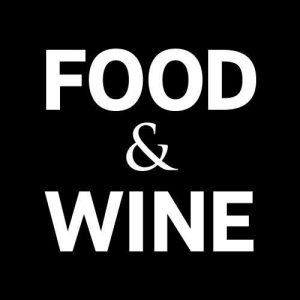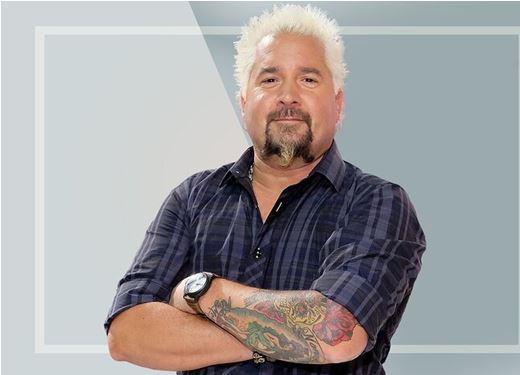Guy Fieri Just Launched a Relief Fund with the National Restaurant Association

He’s also trying to make a Zoom version of Diners, Drive-Ins, and Dives so he can drive business to restaurants for takeout.
By Adam Robb

The threat of the coronavirus became real for Guy Fieri on March 11. He was on location in Philadelphia, filming Diners, Drive-Ins, and Dives, and that night he went to the Wells Fargo Center to see the 76ers play. The game was uneventful. The home team beat the Pistons 124-106, while Fieri and 76ers owner Michael Rubin distracted themselves with a French fry eating contest in the stands. But by the time he hit the parking lot, he heard the Utah Jazz was under quarantine and learned the NBA season was suspended.
Before the night was over he was already on the phone with his manager, producing partner, and the Food Network president, canceling trips to Hawaii and Albuquerque to film new episodes. “I can get there,” he told them, “but I have twenty people—cameramen, a production team—who have families, who have kids, and unfortunately, I think it’s going to get worse before it gets better.”
He spent the rest of the night reassuring restaurants that his team spent months scouting that they wouldn’t be forgotten. “Making those calls was heartbreaking because they change their whole schedule to accommodate us. We told them we’d be back.”
Fieri eventually returned home, retreating to his forestal ranch in northern California, just outside Napa Valley. He’s been self-isolating for the past two weeks, with ranch hands and his eldest son, but he could only spend so long clearing brush with them before he started working the phones to do some good.
Not one for sitting still in the face of an emergency—he’s previously cooked for first responders to the California wildfires—he tried each morning to get a handle on the fast-changing landscape of the industry. He wanted to push cash in the hands of laid-off restaurant workers beyond his own businesses.
“We have a lot of folks who for one reason or another can’t collect unemployment, who live paycheck to paycheck,” he says. “They don’t have back channels, some don’t even have computers, so we had to start generating money.”
A conversation with the California Restaurant Association prompted one with the National Restaurant Association’s Educational Fund, a 501c3 nonprofit organization with experience in cutting checks. This week they’ll begin rewarding one-time $500 grants through its Restaurant Employee Relief Program. “We’re making lemonade out of tree branches,” Fieri says.
Fieri is the spokesman for the effort, and for days now he has been working the phones tailoring personal pleas: video messages sent by text and email to the CEOs of corporations including PepsiCo, UberEats, Cargill, and Ecolab. His fast action helped amass an $8.3 million fund, which unemployed restaurant workers can apply to access beginning April 2.
Because that only equates to 16,600 $500 checks, Fieri is committed to keeping the numbers up so the account doesn’t run dry. “I won’t stop until we have $100 million,” he says, unafraid to go back to ask for more. “And if that doesn’t work, I’m asking for consideration, for more connections to other money, anything that can help the situation.”
Ten days ago he retweeted a video by his friend and business partner, the former Van Halen frontman Sammy Hagar, who cautioned “rockers to go by the rules” when it comes to hand-washing and self-isolation. Fieri says he’s reluctant to record similar messages himself. Unlike the fine-dining chefs who petition the government for industry relief on social media, or get name-checked by President Trump at press conferences, Fieri acknowledges he reaches a more working class, middle American audience. “Everybody reaches a connection point with folks, and I know we have a unique position because of the show, my style, Flavortown,” he says. He’s reluctant to tell people how to behave because he knows people may have to take risks to put food on the table and doesn’t want to do more harm than good.
He has offered some words of encouragement, though. He recently recorded a video message for a friend’s high school students, encouraging them to keep their hopes up: “Be in the mind-space to realize you’re in a historical moment, and as we face these unfamiliar situations remember throughout history we’ve gotten through worse.”
In private, Fieri strikes a more somber tone. He’s in close contact with a cousin in Rome who’s offered him a running preview of what’s to come stateside, with stories of fatalities that have left him rattled. And he’s on the phone reminding his parents every other day to follow the rules. (His father beat pancreatic cancer last year.) He also recently warned a nephew in San Diego, whose semester ended early, to stay in place. “It was a tough message to send but we can’t risk it with my parents,” he says. “I’m no scientist and no doctor, but this worries me on every level.”
He tells his employees—twenty still on the payroll—to follow the rules as well. “Nothing we’re doing right now is so important to violate or jeopardize their well-being,” he says.
In the meantime they’re at home figuring out how to use Zoom to film Diners, Drive-Ins, and Dives to drive business to restaurants for takeout. “It helps the restaurants, it helps the network, and it keeps my people working, even if it’s no Albuquerque.”
Read the full placement here